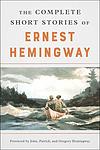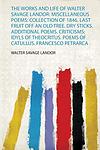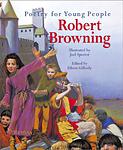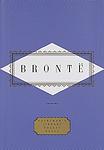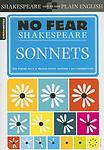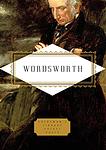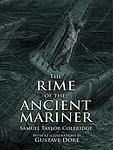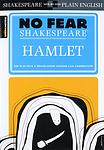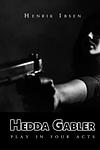How to Read and Why
This is one of the 268 lists we use to generate our main The Greatest Books list.
-
A Reckless Character and Other Stories by Ivan Turgenev
"A Reckless Character and Other Stories" is a collection of narratives that delve into the lives, struggles, and experiences of Russian society during the 19th century. The stories, rich in detail and imbued with a deep understanding of human nature, portray a range of characters, from peasants to nobility, and their interactions, conflicts, and relationships. The title story involves a young woman who defies societal norms and expectations in her quest for freedom and individuality, highlighting the author's talent for character development and social commentary.
-
The Stories of Anton Chekhov by Anton Chekhov
This collection of short stories explores the complexities of human nature and society in 19th-century Russia. Written by a renowned Russian author, the stories range from humorous to tragic, often focusing on the everyday lives and struggles of ordinary people. The author's keen observation and deep understanding of human nature shine through in these tales, making them timeless classics that continue to resonate with readers today.
-
Stories of Guy de Maupassant by Guy de Maupassant
This book is a collection of short stories from a renowned French author, known for his masterful storytelling and keen observations of human nature. The narratives delve into various aspects of life, from love and loss to morality and deception, showcasing the author's ability to capture the complexity of human emotions and experiences. His stories often carry a cynical tone, reflecting the harsh realities of life, and are noted for their surprise endings.
-
Stories of Ernest Hemingway by Ernest Hemingway
This book is a collection of short stories penned by a renowned 20th-century American author, known for his minimalist and direct style of writing. The stories span a range of themes, including love, war, wilderness, and loss, often drawing from the author's own experiences as a journalist and war correspondent. Each story offers a glimpse into the complexities of human nature and the harsh realities of life, showcasing the author's ability to capture profound emotions and experiences in simple, yet powerful prose.
-
The Complete Stories of Flannery O'Connor by Flannery O'Connor
This comprehensive collection of short stories showcases the author's exploration of the human condition, particularly in the American South. The stories, known for their dark humor, religious themes, and grotesque characters, delve into the complexities of morality, ethics, and the struggle between good and evil. The author's unique blend of Southern Gothic style and religious allegory creates a vivid portrait of a society grappling with its own contradictions and shortcomings.
-
The Stories of Vladimir Nabokov by Vladimir Nabokov
This collection showcases the unique storytelling abilities of a renowned author, exploring a variety of themes and settings through 65 different tales. The stories range from brief, whimsical observations and elaborate fantasies to deeply emotional narratives and intellectual puzzles. The author's distinctive style, marked by rich imagery, intricate plots, and playful language, is evident throughout, making the collection a testament to his literary prowess and creativity.
-
Fictions by Jorge Luis Borges
"Collected Fiction" is a compilation of stories by a renowned author that takes readers on a journey through a world of philosophical paradoxes, intellectual humor, and fantastical realities. The book features a range of narratives, from complex, multi-layered tales of labyrinths and detective investigations, to metaphysical explorations of infinity and the nature of identity. It offers an immersive and thought-provoking reading experience, blurring the boundaries between reality and fiction, past and present, and the self and the universe.
-
Gogol's Wife by Tommaso Landolfi
"Gogol's Wife" is a collection of short stories that are known for their unique blend of fantasy, history, and reality. The stories revolve around a variety of themes, from a man's bizarre relationship with his inflatable wife to a writer's struggle with a demanding publisher. The book is characterized by its surrealism, dark humor, and exploration of the human condition, offering readers a glimpse into the strange and often absurd aspects of life.
-
Invisible Cities by Italo Calvino
In this unique novel, a Venetian traveler describes 55 different cities to the Mongol emperor, each city more fantastical and surreal than the last. The cities are divided into categories such as "Cities and Memory," "Cities and Desire," "Cities and Signs," etc. As the traveler continues to describe these cities, it becomes clear that they are all actually the same city, Venice, seen from different perspectives and points in time. The novel explores themes of memory, perception, and the nature of human experience.
-
The Complete Poetry and Prose of William Blake by William Blake
This comprehensive collection features the complete works of a renowned 18th-century English poet and artist, known for his symbolic and critical approach to societal issues. It includes all his prophetic and illuminated poetry, prose, sketches, and illustrations, providing a deep insight into his visionary and revolutionary mind. The book also contains annotations and commentary, making it an invaluable resource for understanding the depth and breadth of the author's philosophical and artistic contributions.
-
The Collected Poems of A. E. Housman by A. E. Housman
This collection gathers the poetic works of a renowned English classical scholar. His poetry, often very personal and emotional, reflects themes of lost love, nature, and the fleetingness of life. The poems are characterized by their simple and clear language, melodic qualities, and deeply melancholic tone. This anthology is a comprehensive representation of the poet's life work, offering insight into his inner world and his profound reflections on human existence.
-
Poems of Alfred Lord Tennyson by Alfred Lord Tennyson
This book is a collection of poems by a renowned 19th-century British poet who is well-known for his descriptive and narrative style. The compilation includes some of his most famous works that delve into themes of nature, beauty, love, death, and time. The poet's mastery in crafting rich imagery and evocative language is evident throughout the collection, making it a treasured piece of Victorian literature.
-
The Works of Walter Savage Landor by Walter Savage Landor
This collection presents the works of a renowned English writer and poet, known for his dialogues and poems that reflect his strong political and social views. His writings span a wide range of topics, from personal relationships to intense political debates, showcasing his wit, eloquence, and mastery of language. The book includes his most famous works as well as lesser-known pieces, providing a comprehensive view of his literary contributions.
-
Robert Browning's Poetry by Robert Browning
This book is a compilation of poems by a renowned 19th-century English poet, known for his mastery in dramatic monologue. The collection showcases his unique style and his exploration of themes such as love, death, and spirituality. The poems reveal his philosophical insights and his ability to create complex psychological portraits of characters, thereby offering readers a profound understanding of the human condition.
-
The Poems of Walt Whitman by Walt Whitman
This collection of poems showcases the work of one of America's most influential and innovative poets. The book features a diverse range of themes, from nature and love to death and the human spirit, reflecting the author's unique and groundbreaking use of free verse. The poet's celebration of democracy, his love for America, and his belief in the fundamental equality of all people are also strongly evident throughout the collection.
-
Poems of Emily Dickinson by Emily Dickinson
This collection of poetry encapsulates the works of a renowned 19th-century American poet, known for her unique style and themes. The poems, often characterized by their unconventional punctuation and capitalization, explore a wide range of topics including death, immortality, love, and nature. The poet's introspective and often cryptic style has made her one of the most studied and celebrated figures in American literature.
-
The Poems of Emily Bronte by Emily Brontë
This book is a collection of the poetic works of a renowned 19th-century English novelist and poet. The poems reflect her deep connection with nature and her profound understanding of human emotions. Through her poetry, she explores themes such as love, death, and faith, often invoking the wild and rugged landscape of Yorkshire, which greatly influenced her work. The collection serves as a testament to her skill as a poet, showcasing her ability to capture complex feelings and thoughts in beautifully crafted verses.
-
The Sonnets by William Shakespeare
"The Sonnets" is a collection of 154 poems that explore themes such as love, beauty, politics, and mortality. The sonnets are written in a specific form that the poet popularized, consisting of 14 lines with a specific rhyme scheme. The collection is divided into two sections: the first 126 sonnets are addressed to a young man, while the last 28 are addressed to a woman known as the 'dark lady'. This collection is widely considered one of the greatest achievements in English literature.
-
Paradise Lost by John Milton
"Paradise Lost" is an epic poem that explores the biblical story of Adam and Eve's fall from grace in the Garden of Eden. It delves into their temptation by Satan, their subsequent expulsion, and the consequences of their disobedience. The narrative also provides a complex portrayal of Satan as a rebellious angel, who, after being cast out of Heaven, seeks revenge by causing mankind's downfall. The poem is a profound exploration of free will, divine justice, and the human struggle with good and evil.
-
Lyrical Ballads by William Wordsworth, Samuel Taylor Coleridge
"Lyrical Ballads" is a collection of poems that marks the beginning of the English Romantic Movement in literature. The book features a series of poems that blend traditional forms with a direct, realistic style and themes focusing on rural life, the supernatural, and the struggles of common people. It also includes the authors' philosophical reflections on nature, imagination, and the human condition.
-
The Prelude by William Wordsworth
"The Prelude" is an autobiographical, epic poem that explores the author's spiritual growth and development. The narrative takes the reader through the poet's childhood and youth, his experiences in the French Revolution, and his subsequent disillusionment. It also delves into his relationship with nature, which he sees as a powerful, spiritual force that has shaped his life and consciousness. The poem is a reflection on the poet's personal journey towards understanding his own mind and the world around him.
-
The Rime of the Ancient Mariner by Samuel Taylor Coleridge
"The Rime of the Ancient Mariner" is a classic English poem that tells the story of a mariner who kills an albatross, bringing bad luck and hardship on himself and his ship's crew. The mariner's journey becomes a spiritual quest as he is forced to confront the consequences of his actions and the nature of redemption. The poem is known for its vivid and imaginative language, including the famous line, "Water, water, everywhere, Nor any drop to drink."
-
The Poems of Percy Bysshe Shelley by Percy Bysshe Shelley
This collection of poetry showcases the lyrical and evocative works of a prominent Romantic poet, known for his passionate and often radical themes. The poems cover a wide range of subjects, from love and beauty to politics and nature, embodying the poet's revolutionary spirit and his deep belief in the power of human imagination. His eloquent verses, characterized by vivid imagery and profound emotional intensity, continue to inspire and captivate readers around the world.
-
The Poems of John Keats by John Keats
This book is a compilation of poems by a renowned Romantic poet, who is recognized for his eloquent and expressive use of language. It includes his most famous works, often exploring themes of love, beauty, mortality, and the human condition. The collection showcases the poet's unique ability to capture the intricacies of human emotions and the beauty of nature, making it a must-read for lovers of classic English literature and poetry.
-
Hamlet by William Shakespeare
This classic play revolves around the young Prince of Denmark who is thrown into a state of emotional turmoil after his father's sudden death and his mother's quick remarriage to his uncle. The prince is visited by the ghost of his father who reveals that he was murdered by the uncle, prompting the prince to seek revenge. The narrative explores themes of madness, revenge, and moral corruption as the prince navigates the complex political and emotional landscape of the Danish court.
-
Hedda Gabler by Henrik Ibsen
"Hedda Gabler" is a dramatic play that centers on the life of its titular character, a woman trapped in a loveless marriage with a dull, reliable husband. She is bored with her life and longs for freedom and excitement. Her desire for control and power leads her to manipulate those around her, resulting in tragic consequences. The play explores themes of societal expectations, personal freedom, and the destructive power of boredom.
-
The Importance of Being Earnest by Oscar Wilde
This comedic play revolves around two protagonists who both use the pseudonym "Ernest" to escape their social obligations. Their plans unravel when they fall in love and their betrothed women reveal they are only willing to marry men named Ernest. The situation is further complicated by a case of mistaken identity, a lost handbag, and a surprising revelation about one of the protagonist's parentage. The play uses wit and humor to satirize the social conventions of Victorian England, particularly the importance placed on trivialities.
-
Don Quixote by Miguel de Cervantes
This classic novel follows the adventures of a man who, driven mad by reading too many chivalric romances, decides to become a knight-errant and roam the world righting wrongs under the name Don Quixote. Accompanied by his loyal squire, Sancho Panza, he battles windmills he believes to be giants and champions the virtuous lady Dulcinea, who is in reality a simple peasant girl. The book is a richly layered critique of the popular literature of Cervantes' time and a profound exploration of reality and illusion, madness and sanity.
-
The Charterhouse of Parma by Stendhal
The novel follows the life of a young Italian nobleman, who, driven by romantic ideals and a thirst for adventure, leaves his comfortable life to join Napoleon's army. After surviving many trials and tribulations, he returns home to a life of political intrigue, love affairs, and power struggles in the court of Parma. The narrative provides a vivid and satirical depiction of the political and social life in Italy during the 19th century.
-
Emma by Jane Austen
The novel revolves around Emma, a well-meaning but disaster-prone matchmaker, who ignores her own romantic feelings while setting out to find a suitor for her friend Harriet. Her efforts cause more problems than solutions as she leaves a trail of mishaps behind her. As her plans go awry, Emma realizes that she herself may be the one in love. The book is a classic exploration of social manners, love, and marriage in 19th-century England.
-
Great Expectations by Charles Dickens
A young orphan boy, living with his cruel older sister and her kind blacksmith husband, has an encounter with an escaped convict that changes his life. Later, he becomes the protégé of a wealthy but reclusive woman and falls in love with her adopted daughter. He then learns that an anonymous benefactor has left him a fortune, leading him to believe that his benefactor is the reclusive woman and that she intends for him to marry her adopted daughter. He moves to London to become a gentleman, but his great expectations are ultimately shattered when he learns the true identity of his benefactor and the reality of his love interest.
-
Crime and Punishment by Fyodor Dostoevsky
A young, impoverished former student in Saint Petersburg, Russia, formulates a plan to kill an unscrupulous pawnbroker to redistribute her wealth among the needy. However, after carrying out the act, he is consumed by guilt and paranoia, leading to a psychological battle within himself. As he grapples with his actions, he also navigates complex relationships with a variety of characters, including a virtuous prostitute, his sister, and a relentless detective. The narrative explores themes of morality, redemption, and the psychological impacts of crime.
-
The Portrait of a Lady by Henry James
This classic novel explores the life of a young, independent American woman who inherits a large amount of money and moves to Europe, where she falls into a manipulative and oppressive marriage. The story delves into themes of personal freedom, responsibility, and betrayal, as the protagonist navigates the complexities of high society, love, and the consequences of her choices.
-
In Search of Lost Time by Marcel Proust
This renowned novel is a sweeping exploration of memory, love, art, and the passage of time, told through the narrator's recollections of his childhood and experiences into adulthood in the late 19th and early 20th century aristocratic France. The narrative is notable for its lengthy and intricate involuntary memory episodes, the most famous being the "madeleine episode". It explores the themes of time, space and memory, but also raises questions about the nature of art and literature, and the complex relationships between love, sexuality, and possession.
-
The Magic Mountain by Thomas Mann
In this novel, the protagonist, a young, ordinary man, visits his cousin at a tuberculosis sanatorium in the Swiss Alps. Intending to stay for only a few weeks, he ends up remaining there for seven years, becoming a patient himself. The book explores his experiences and relationships with other patients and staff, delving into philosophical discussions on life, time, and the nature of disease. It also provides a vivid portrayal of the European society and intellectual life on the eve of World War I.
-
Moby Dick by Herman Melville
The novel is a detailed narrative of a vengeful sea captain's obsessive quest to hunt down a giant white sperm whale that bit off his leg. The captain's relentless pursuit, despite the warnings and concerns of his crew, leads them on a dangerous journey across the seas. The story is a complex exploration of good and evil, obsession, and the nature of reality, filled with rich descriptions of whaling and the sea.
-
As I Lay Dying by William Faulkner
The narrative unfolds through the eyes of 15 different characters over 59 chapters. It is the story of the death of Addie Bundren and her poor, rural family's quest and motivations—noble or selfish—to honor her wish to be buried in her hometown of Jefferson, Mississippi. As the Bundren family undertakes a journey to fulfill Addie's last wish, they face many hardships and personal revelations. The novel explores themes of existentialism, death, and the nature of family relationships.
-
Miss Lonelyhearts by Nathanael West
This novel revolves around an advice columnist, who writes under the pseudonym "Miss Lonelyhearts", for a New York newspaper during the Great Depression. As he reads and responds to the desperate letters from the city's distressed and downtrodden, he becomes increasingly disillusioned and depressed, struggling with his own faith, identity, and the bleakness of the human condition. The protagonist's personal life also spirals out of control, entangling him in a series of complicated romantic relationships and leading to a tragic conclusion.
-
The Crying of Lot 49 by Thomas Pynchon
The novel follows the journey of a woman who stumbles upon a centuries-old conflict between two mail distribution companies when she is appointed the executor of her ex-lover's will. As she delves deeper into the mystery, she begins to question her own sanity and the reality of the conspiracy itself. The story explores themes of communication, interpretation, and the struggle to find meaning in a chaotic world.
-
Blood Meridian by Cormac McCarthy
Set in the mid-19th century, this novel follows a violent teenager known as "the Kid" as he joins a group of Indian-hunters led by the enigmatic and brutal Judge Holden. The narrative is a gruesome depiction of the lawless American West, filled with philosophical musings, vivid descriptions of the harsh landscape, and brutal, relentless violence. The story explores themes of human nature, morality, and the inherent chaos and brutality of life.
-
Invisible Man by Ralph Ellison
The novel is a poignant exploration of a young African-American man's journey through life, where he grapples with issues of race, identity, and individuality in mid-20th-century America. The protagonist, who remains unnamed throughout the story, considers himself socially invisible due to his race. The narrative follows his experiences from the South to the North, from being a student to a worker, and his involvement in the Brotherhood, a political organization. The book is a profound critique of societal norms and racial prejudice, highlighting the protagonist's struggle to assert his identity in a world that refuses to see him.
-
Song of Solomon by Toni Morrison
The novel explores the life of an African-American man, Macon "Milkman" Dead III, from birth to adulthood. Set against the backdrop of racial tension in the mid-20th century United States, it delves into his journey of self-discovery and understanding his heritage. As Macon embarks on a literal and figurative journey south to reconnect with his roots, he encounters various characters that help him understand his family history and the power of community. The narrative is deeply rooted in African-American folklore and mythology, offering a profound commentary on identity, personal freedom, and the destructive power of racism.
Harold Bloom, 42 Books
Information is endlessly available to us; where shall wisdom be found?" is the crucial question with which renowned literary critic Harold Bloom begins this impassioned book on the pleasures and benefits of reading well. For more than forty years, Bloom has transformed college students into lifelong readers with his unrivaled love for literature. Now, at a time when faster and easier electronic media threatens to eclipse the practice of reading, Bloom draws on his experience as critic, teacher, and prolific reader to plumb the great books for their sustaining wisdom. - Amazon
Added over 9 years ago.
This list has a weight of 46%. To learn more about what this means please visit the Rankings page.
Here is a list of what is decreasing the importance of this list:
- Voters: 1 person voted
- List: only covers mostly "Western Canon" books
If you think this is incorrect please e-mail us at contact@thegreatestbooks.org.



